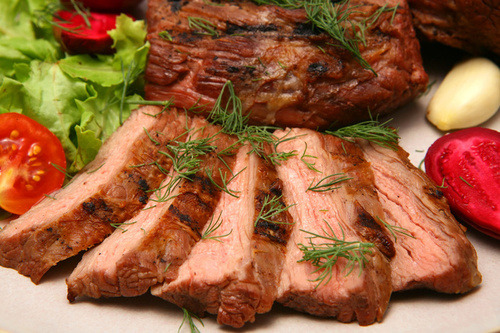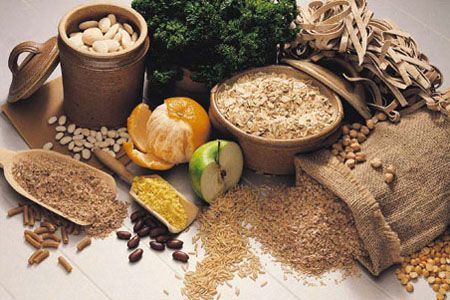Proteins are the organic cells that make up living matter: muscle, the various organs, including the liver and the brain, the skeletal structure, and so on. They are themselves composed of simpler elements called amino acids. The body manufactures some of these, while most of the others are introduced into the body in a variety of foods. Food protein comes from two sources:
—Animal sources: proteins are found in large quantities in meat, fish, cheese, eggs, milk.

—Vegetable sources: soya, almonds, hazelnuts, whole cereals and certain pulses also contain protein.

Ideally, we should consume as much vegetable protein as animal. Protein is essential to the body:
—For building cells as a potential source of energy, once it has been converted into glucose (via the Krebs cycle).
—For making certain hormones and neurotransmitters.
—For the production of nucleic acids (essential for reproduction).
A diet deficient in protein can have serious consequences for the body; these include muscle deterioration and wrinkling of the skin.
A child should consume about 60g of protein per day, while an adolescent needs 90g. The adult daily intake should be 1g per kilogram of body weight, subject to a minimum of 55g for women and 70g for men.
With the exception of eggs, neither animal proteins nor vegetable proteins alone can achieve the necessary balance of amino acids.
The absence of one amino acid can constitute an impediment to the assimilation of others. The diet should therefore include both animal and vegetable proteins.
A vegan diet, based solely on vegetable protein, will be unbalanced, in that it will be lacking in cystine, which will result in problems with nail and hair growth. A vegetarian diet, which includes eggs and dairy produce, on the other hand, can be perfectly well balanced.
